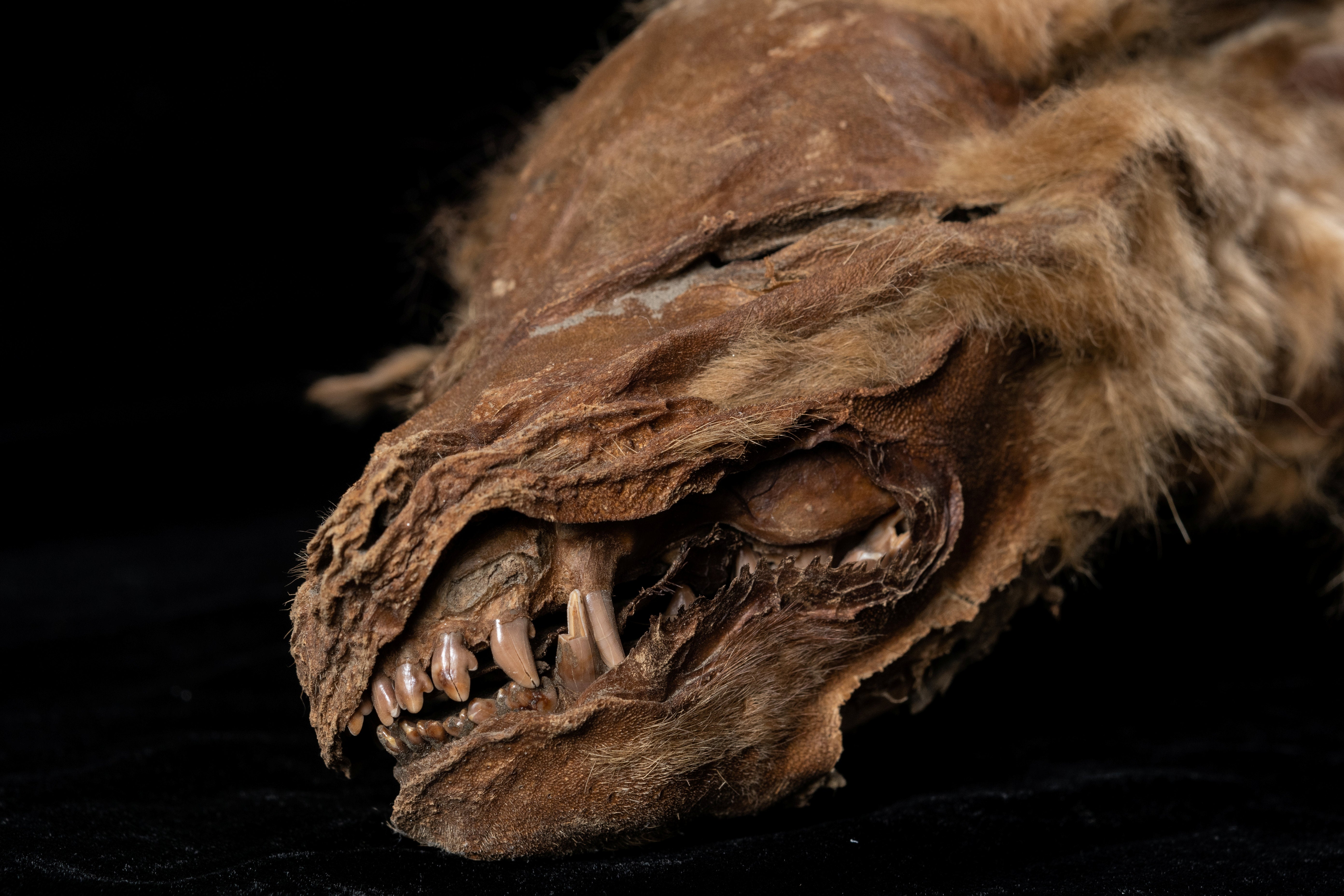Ice Age wolf pup mummy discovered in Canadian permafrost
The remains were first discovered by a gold miner in 2016

Your support helps us to tell the story
From reproductive rights to climate change to Big Tech, The Independent is on the ground when the story is developing. Whether it's investigating the financials of Elon Musk's pro-Trump PAC or producing our latest documentary, 'The A Word', which shines a light on the American women fighting for reproductive rights, we know how important it is to parse out the facts from the messaging.
At such a critical moment in US history, we need reporters on the ground. Your donation allows us to keep sending journalists to speak to both sides of the story.
The Independent is trusted by Americans across the entire political spectrum. And unlike many other quality news outlets, we choose not to lock Americans out of our reporting and analysis with paywalls. We believe quality journalism should be available to everyone, paid for by those who can afford it.
Your support makes all the difference.An ancient wolf pup, perfectly preserved in permafrost, has been discovered in Yukon, scientists have revealed. T
The creature dates from the Ice Age and its remains were discovered by a gold miner in 2016 near to Dawson City in Yukon. It has been given the name Zhùr which means wolf in the local indigenous Han language.
It appears that the animal, confirmed as female, died suddenly when the den she was in collapsed.
The remains contain particularly exceptional details of muscle tissue and allow an insight into what life was like in Canada 2.6 million years ago. They also constitute the oldest ever recorded wolf and may help to shed light on the evolution of the animal.
A professor of anatomy at Des Moines University in Iowa, Julie Meachen, called the creature: “the most complete wolf mummy that’s ever been found.” Ms Meachen added that the wolf was “basically 100 per cent intact” saying that the only thing missing are her eyes.
The fact the remains are so complete has let scientists “basically reconstruct her life” said the professor.
Yukon Government palaeontologist, Dr Grant Zazula described the wolf as “beautiful” and “spectacular” and said it had: “cute little paws and tail and the curled upper lip showing its teeth.”
Dr Grant highlighted how rare it is to find a mummy in Yukon. In order for the animal to be mummified it would have needed to have been buried very quickly. The palaeontologist explained: "The animal has to die in a permafrost location, where the ground is frozen all the time, and they have to get buried very quickly, like any other fossilisation process.”
The longer a dead animal is left exposed, the more likely it is to be eaten by predators or to begin to decompose.
Ms Meachen attributed the mummification to the fact that the pup died in a den collapse. She added:"our data showed she didn't starve and was about seven weeks old, so we feel a bit better knowing the poor little girl didn't suffer for too long."
At seven months old, modern day grey wolves in the region have only just been weaned from their mother.
This means that by studying chemicals in the pup’s hair and teeth, researchers were able to work out what the mother would have eaten and it seems that her diet was predominantly made up of aquatic foods.
Ms Meachen said that they were “surprised” by this finding. She said: "Normally when you think of wolves in the Ice Age, you think of them eating bison or musk oxen or other large animals on land.”
Through analysis of the wolf’s genome, scientists also deduced that she was descended from ancient wolves in Russia, Siberia and Alaska, rather than the grey wolves of North America.
The discovery of the carcass is thought to be partly due to climate change, making mummies more visible as the permafrost melts.
Ms Meachen called the finding a “small upside of climate change” but highlighted the fact that we “really need to be careful.”
The remains are currently on display in Canada at the Yukon Beringia Interpretive Centre, Whitehorse.



Join our commenting forum
Join thought-provoking conversations, follow other Independent readers and see their replies
Comments